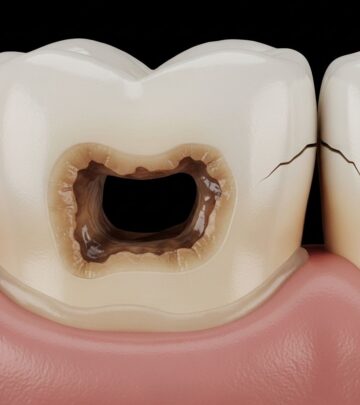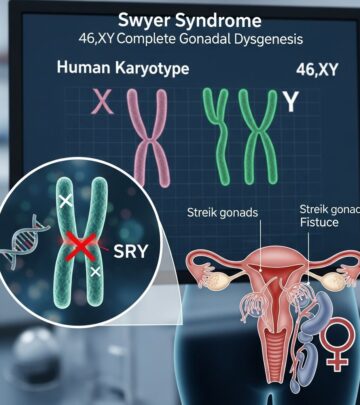Symptoms of Anal Cancer: Essential Signs, Diagnosis, and When to Seek Help
Recognizing the symptoms of anal cancer is crucial for early diagnosis and successful treatment—learn what signs to watch for and when to see a doctor.

Symptoms of Anal Cancer
Anal cancer is a rare form of cancer that affects the tissues of the anus. Its symptoms can often be mistaken for less serious conditions such as hemorrhoids (piles) or anal fissures. Early recognition of the signs and prompt medical attention are vital, as catching cancer early vastly improves the chances of successful treatment.
Main Symptoms of Anal Cancer
The following are the key symptoms commonly associated with anal cancer. Not all individuals will experience every symptom, and some people may have very mild or no symptoms at all.
- Bleeding from your bottom – This may occur during or after having a bowel movement. Bleeding can be visible as blood mixed with stool, streaks of blood on the outside of stool, on toilet tissue, or visible in the toilet water. The water may appear pink due to diluted blood.
- Itching and pain around your anus – Persistent itchiness or pain in the anal area is a common sign. Pain may worsen during bowel movements or be present at rest.
- Small lumps around or inside your bottom – Lumps or growths may be felt externally around the anus or internally just inside the anal canal. These may be hard, fleshy, or tender.
- A discharge of mucus from your bottom – The presence of mucus, either noticed during a bowel movement or on underwear, is produced by mucous membranes designed to lubricate the area.
- Problems controlling when you poo (bowel incontinence) – This may manifest as difficulty holding in stool or accidental leakage.
- Needing to poo often, with looser or runnier stools – Changes in bowel habits, such as more frequent urges, thinner stools, or diarrhea, can be signs of anal cancer.
Comparing Symptoms: Anal Cancer vs. Hemorrhoids and Fissures
It is important to know that many of the symptoms listed above are also common to benign, non-cancerous conditions like hemorrhoids and anal fissures. The table below highlights the main differences between these issues:
| Feature | External Hemorrhoids | Anal Cancer |
|---|---|---|
| Cause | Swollen veins due to excess pressure | Abnormal cell growth forming lumps or masses |
| Symptoms |
|
|
Most lumps around the anus are not cancer. If symptoms persist or worsen, seek medical advice.
Other Symptoms to Watch For
- A sore or ulcer that doesn’t heal – This may develop in or around the anus and can be painful or bleed.
- Severe itching (pruritus) – Intense itchiness may affect the skin surrounding the anus.
- Passing mucus – Moving a slippery mucous substance during bowel movements is common.
- Changes to bowel habits – These might include new or increasing difficulty controlling bowels, urgent need to defecate, or thin, narrowed stools. Some people feel the need to pass stool even after just finishing or never feel completely emptied.
- Abnormal connections (fistula) – Rarely, an abnormal tunnel may form between the anus or rectum and other nearby parts of the body. This can cause the passage of wind or stool through unusual locations.
- Swollen lymph nodes in the groin – These may feel like lumps under the skin, indicating spread of cancer cells.
How Common Are Symptoms?
Anal cancer may present with pronounced symptoms in some patients. However, approximately 20% of people with this cancer may not notice any symptoms at all, or the symptoms might be so mild they are easily overlooked. Routine self-examination and being aware of ‘what is normal for you’ is the best way to detect changes early.
What To Do If You Notice Symptoms
If you experience any of the above symptoms — especially bleeding, pain, lumps, or changes in bowel habits — it is important not to ignore them. See your GP for non-urgent advice if you:
- Have any symptoms suggestive of anal cancer.
- Notice a change around your anus that isn’t normal for you.
- Have bleeding from your bottom that lasts longer than three weeks.
- Experience bowel changes, unexplained tiredness, or weight loss alongside bleeding.
Most symptoms are caused by benign conditions, but a medical professional can rule out serious causes and recommend next steps. If symptoms are caused by cancer, early detection makes treatment more likely to succeed.
Urgent Symptoms: When to Seek Immediate Medical Attention
- Bright red blood in stool or diarrhea mixed with blood – See your GP urgently or contact NHS 111.
- Heavy, persistent bleeding or bleeding that won’t stop – Go immediately to A&E or call emergency services.
How Anal Cancer is Assessed and Diagnosed
If you visit your GP with symptoms, the typical assessment includes:
- Questions about your overall health and recent symptoms.
- A physical examination, which may include feeling your tummy and a rectal exam — the GP will gently insert a gloved finger into your bottom to check for lumps or abnormalities.
If your GP finds anything suspicious or thinks your symptoms could be related to cancer, you may receive an urgent referral to a hospital specialist for further tests, such as:
- Imaging scans (MRI, CT, ultrasound)
- Biopsy (taking a tissue sample for laboratory analysis)
- Endoscopy (camera examination of the lower bowel and anal canal)
Referral does not necessarily mean you have cancer, but it is important for accurate diagnosis and prompt care.
FAQs About Anal Cancer Symptoms
Q: Are symptoms of anal cancer always obvious?
A: No. Some people experience very mild symptoms or none at all. However, vigilance for changes like bleeding, lumps, and persistent discomfort remains vital.
Q: Can hemorrhoids or fissures cause similar symptoms?
A: Yes, many symptoms overlap. Bleeding, lumps, pain, and mucus can be common in both benign and malignant conditions. Only a GP can confirm the cause through assessment and tests.
Q: Should I be worried if I just have itching or mild pain?
A: Itching and mild pain may be caused by common conditions like hemorrhoids or minor infections. However, if these symptoms persist or are accompanied by lumps or bleeding, seek medical advice.
Q: If I pass mucus during bowel movements, is it a sure sign of cancer?
A: Passing mucus is a sign that may occur with anal cancer, but it also happens with other less serious conditions. Persisting symptoms should always be evaluated by a doctor.
Q: How quickly should I see a doctor if I experience symptoms?
A: If symptoms are mild and have lasted less than three weeks, book a non-urgent appointment with your GP. For heavy bleeding, bright red blood, or rapid changes in health, seek urgent or emergency medical attention.
Q: What happens if symptoms are caused by anal cancer?
A: Early diagnosis is key. If cancer is found, treatment options include surgery, radiotherapy, and chemotherapy. Prognosis improves with early intervention.
Summary Table: Symptoms and Their Urgency
| Symptom | Possible Cause | Urgency |
|---|---|---|
| Bleeding from the anus | Anal cancer, hemorrhoids, fissures | If persistent (>3 weeks) or heavy, seek urgent medical advice |
| Itching, pain | Anal cancer, hemorrhoids, infection | If persistent or severe, see GP |
| Lumps | Anal cancer, hemorrhoids | If growing or hard, see GP |
| Mucus discharge | Anal cancer, infection | If persistent, see GP |
| Bowel incontinence | Anal cancer, neurological, other bowel disease | If sudden onset, urgent assessment |
| Swollen groin lymph nodes | Spread of cancer, infection | If persistent, see GP |
Why Early Detection is Key
Finding cancer early is the most important factor for effective treatment and successful outcomes. Because anal cancer symptoms are often subtle or easily confused with other conditions, regular self-checks and prompt medical advice for any persistent changes are essential. Remember, most people with these symptoms do not have cancer, but only a professional can tell for sure.
Additional Support and Next Steps
If you are facing concerning symptoms or have received a diagnosis of anal cancer, support services are available from national cancer charities and healthcare providers. Discuss any worries with your GP, and do not hesitate to ask about emotional support and guidance through treatment options and recovery.
Frequently Asked Questions (FAQs) about Anal Cancer Symptoms
Q: Does anal cancer always cause bleeding?
A: Bleeding is a common symptom, but it is not present in every case. Approximately 1 in 5 patients report no symptoms, especially in early stages.
Q: Can anal cancer develop without warning signs?
A: Yes, some patients experience no symptoms until the disease has progressed. Annual check-ups and awareness of personal health changes are important.
Q: Should I see a GP even if symptoms feel minor?
A: Yes. Minor symptoms can be a sign of benign issues or something more serious like cancer. Early assessment helps prevent complications and ensures faster treatment if needed.
Q: How will my GP evaluate anal cancer symptoms?
A: The GP will ask questions, perform a physical exam (including a rectal check), and may refer you for hospital tests such as scans or biopsies for confirmation.
Q: Does having these symptoms mean I definitely have cancer?
A: No. Most people with symptoms have benign conditions. Still, new, persistent, or worsening symptoms should always be discussed with your GP.
Q: Where can I get more information and support?
A: Cancer support organizations and national health services offer advice, emotional support, and resources for individuals undergoing diagnosis and treatment for anal cancer.
Read full bio of Sneha Tete












